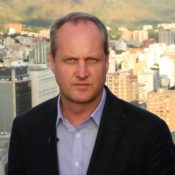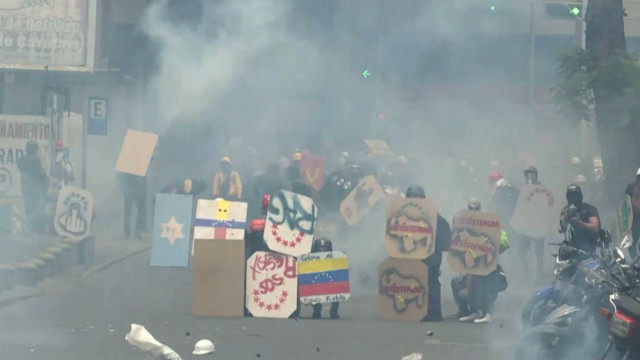The government says at least 42 have died since the demonstrations erupted in Venezuela last month. Now, officials are sending extra troops to western Venezuela, where there has been widespread looting.
CGTN’s Stephen Gibbs spoke to Venezuela’s former attorney general to discuss possible solutions to the crisis.

The question everyone in Venezuela, and many outside, are asking – Will the government give in to opposition demands for early presidential elections, or will the opposition become too tired or too persecuted to carry on?
President Nicolas Maduro says he has a solution for this political crisis. He’s calling for a constituent assembly – an all-powerful group which will rewrite the constitution of Venezuela. While it meets, all other institutions – like the opposition-controlled parliament – will cease to function.
The opposition has rejected the idea – it sees it as an excuse not to hold real elections and worries that the government will pre-select its own majority in the assembly.
The plan has also surprised some government supporters. Venezuela last re-wrote its constitution in 1999, under the late Hugo Chavez.
The little blue book that emerged has for the last 18 years been a prop of pro-government leaders. So why rewrite it now?
Isaias Rodriguez is the former Attorney General and Vice President of Venezuela who helped write the 1999 constitution. He has been called back from his current role as ambassador to Italy to help with the new one.
Rodriguez says the new constitution will be one that emphasizes social rights, such as free healthcare – a boast of Venezuela’s leftist government – over individual rights.
But what about political parties? There have been suggestions the new constitution will outlaw them and get rid of the opposition-controlled National Assembly.
Rodriguez, in contrast to some senior figures in the government, does accept that there is plenty of discontent in Venezuela, which is in the midst of the deepest recession in the world. He accepts that people want change.
Rodriguez expressed some support for the current attorney general of Venezuela, Luisa Ortega, who is seen as a possible rebel inside the government. She recently said an attempt by the Supreme Court in March to usurp the power of parliament was breaking the constitution.
“My sisters are all opposition,” Rodriguez said. “And one of my children is belligerently pro- opposition, but we discuss things and we respect each other.”
He also suspects that he is not alone. This government, Rodriguez suggests, is not simply made up of radicals.
“Possibly in the government also there are people who have opinions like mine, but they are not noticed, among other things good because they possibly do not think it convenient or opportune to contradict the government,” Rodriguez said.
Many in Caracas feel that the way out of this crisis will be common ground, found between moderates in the government and moderates in the opposition. The two sides seem miles apart now, but perhaps some are closer than they appear.
 CGTN America
CGTN America

